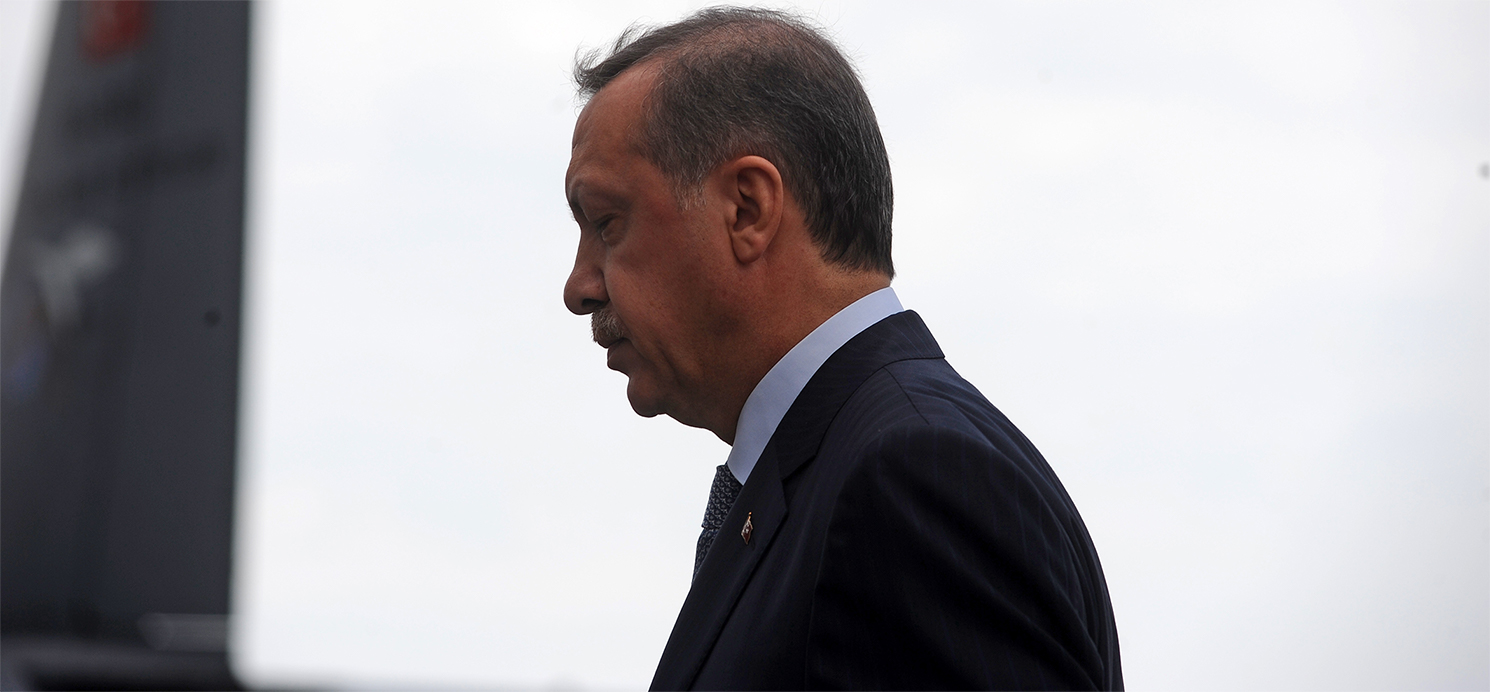Turkish foreign policy has undergone several changes since the outbreak of the Arab Spring, due to the fluidity of regional politics on one hand, and the complexity of domestic Turkish issues on the other, especially after the failed coup of 2016. Today,
Turkey’s calculations appear to have changed significantly, as illustrated by its stance towards developments in Tunisia.
For, despite close ties between the Turkish Justice and Development Party and the Tunisian Ennahda Movement, the Muslim Brotherhood’s political wing, as well as the strong personal relationship between Turkish President Recep Tayyip Erdogan and Ennahda leader Rashid Ghannouchi, Turkey adopted a markedly cautious official stance towards recent developments in Tunisia.
The Foreign Ministry took the initiative in demonstrating Turkey’s stance, expressing its deep concern about the suspension of the Tunisian Parliament, as well as its hopes that democratic legitimacy would be restored as soon as possible in accordance with the provisions of the Tunisian Constitution. The ministry stressed that preserving Tunisia’s exceptional status and democratic gains is of great importance to the region.
On his part, Turkish presidential spokesperson Ibrahim Kalin declared on his Twitter account that Turkey rejects the suspension of the democratic process in Tunisia, but noted his confidence that Tunisian democracy will emerge stronger.
Although President Erdogan’s advisers and those close to him denounced President Saied’s decisions, Erdogan made no direct statements himself. Turkey’s Foreign Minister Mevlut Çavuşoğlu called his Tunisian counterpart Othman al-Jarandi, merely expressing concern over the developments in Tunisia, and his confidence that the Tunisian people will overcome this tense period.
President Erdogan’s first direct response on events in Tunisia came eight days after the Tunisian president’s moves, in the form of a phone call with President Saied on August 2nd. According to the Turkish Presidency’s Communication Department, the two leaders discussed developments in Tunisia, bilateral relations, and regional issues. Erdogan noted the importance of maintaining Tunisia’s peace and stability, which are essential to the region’s stability. He also expressed his confidence that Tunisia will overcome this critical stage, stressing the need for the Tunisian Parliament to resume its activities, as a platform for dialogue, healthy debate, and resolving problems.
Four determinants of the Turkish stance
Turkey’s cautious stance came in alignment with its current foreign policy, and is linked to four main objectives:
1- Preserving Turkey’s role: Turkish foreign policy under AK Party’s rule has gone through three different phases. In the first phase, the new political elites adopted a new model prioritizing integration and cooperation with countries in the region, focusing on economic and diplomatic ties. This would move regional politics away from an approach driven by common security interests towards more flexible relations based on shared values. Thus, was established Ahmed Davutoglu’s “zero problems” policy.
In the second phase, with Turkey’s rising stature as an economic power and regional peace broker, Ankara began to deepen its ties in the Middle East. Turkey’s “strategic independence” in this period gradually increased thanks to the diversification of foreign policy ties with various regions, and it began to prioritize Middle East ties over its orientation towards the west.
In the current third phase, Turkey has strengthened ties with Arab countries, developing its tools and changing its stances, from passivity,
to preemption, and finally to expansionism, pursuing wider military and political regional influence, as exhibited in Syria, Iraq, and Libya.
However, it would appear that Turkey has recently realized that expansionism has not served its interests, and has to some degree backed away from this approach, in favor of more diplomatic coordination and economic cooperation. Turkish policymakers appear to be increasingly convinced that it is these tools that can preserve Turkey’s regional role and avoid its isolation.
2- Reshaping regional relations: After years of estrangement and tension, Turkey has in recent months launched a serious diplomatic campaign aimed at improving relations with the countries of the region. This campaign has been linked to the mounting challenges facing Ankara, as well as growing tensions with the United States.
2021 kicked off with a reconciliation in the Arab region between the quartet countries and Qatar, in an attempt to overcome disagreements This provided a strong impetus for Turkey, as it realized that missing out on the reconciliation would be a wasted opportunity, resulting in the loss of significant investment and economic opportunities, and would further isolate Turkey in the Arab world.
It became clear that following the reconciliation, there was little hope in implementing the project to transport gas from Qatar to Turkey via Iran, and that it would be wiser for Turkey not to rely solely on this project for energy transport, but instead search for alternatives. This prompted an attempt to win Egypt’s favor in order to obtain its assistance in several matters, including increasing its access to Mediterranean gas, in which Egypt plays a pivotal role.
In this context, it appears that President Erdogan realized that any move to escalate with regard to Tunisia may jeopardize his relationship with the Arab countries supportive of the developments in Tunisia, as well as Washington, which would mean more strategic losses for Turkey.
3- Preserving strategic relations with Tunisia: While strong relations between Tunisia and Turkey in the last few years are linked to the alliance between Erdogan and Ghannouchi, Tunisia holds a special importance in Turkey’s regional relations, which is not predicated on Ennahda’s involvement in the government.
The country has become a hub for Turkish investments and businessmen, reflecting Turkey’s perception of Tunisia as one of the most important countries in the region for investment , and an ideal alternative to other less stable countries. There are currently approximately 50 Turkish economic ventures in various fields in Tunisia, helping to create 2,500 job opportunities.
Tunisia also represents a gateway to maximizing Turkish presence in the Maghreb region, whose markets Turkey needs, and which may also be a gateway to new African markets. In December 2020, Tunisia and Turkey signed a military agreement in which Turkey provided Tunisia with at least USD 150 million in interest-free loans in exchange for the purchase of Turkish military equipment. The agreement also provided for cooperation in the military industrial sector, the creation of joint platforms for research and development, the production of spare parts, and the joint export of military equipment. This cooperation would allow Ankara to establish a solid industrial base in Tunisia from which to export its military equipment to all parts of the Maghreb and Africa.
Turkey also perceives that it shares strong cultural and civilizational links with Tunisia. This dynamic will remain a catalyst in the development of the relations between the two countries regardless of any changes in their regimes. Accordingly, President Erdogan appears to have adopted a position on Tunisia that allows him room to maneuver in the future, regardless of the nature of the ruling power in Tunisia.
4- Maintaining coordination on Libya: Since the fall of the Muammar Gaddafi regime in 2011, Turkey has provided support for political Islam in Libya, and Misrata in particularly, which holds the largest number of Islamist supporters in western Libyan. Turkey therefore provided support for the Dawn of Libya coalition in the face of Operation Dignity led by Khalifa Haftar, causing tensions between Turkey and Haftar, as well as eastern Libya as a whole. Over time, Turkey has become more politically and economically involved in Libya, through its military presence and the maritime border demarcation agreement signed by the two countries. It is also working to acquire as many reconstruction projects in the country as possible.
To this end, Turkey intensified efforts towards enhancing relations with Libya’s neighboring countries, especially Tunisia. Turkey sought to gain Tunisian support for its agenda in Libya, demonstrated in President Erdogan’s sudden visit to Tunisia in December 2019, a few days after the Turkish presidency announced the possibility of preparing a draft law that would allow sending forces to Libya in support of the government. However, Tunisia did not acquiesce to Turkish aspirations in this respect. The Tunisian president made it clear at the time that the agreement signed between Turkey and Libya related to the demarcation of the maritime borders did not affect Tunisia and was not discussed in his meeting with Erdogan.
Still, Tunisia remains important for Turkey’s endeavors in Libya, including supporting its potential role in the reconstruction process, as well as assisting Ankara in monitoring the Libyan borders against non-traditional threats, and utilizing Tunisian ports to reach Tripoli, Libya. Accordingly, even if the current Tunisian stance does not fully endorse Turkey’s role in Libya, losing Tunisia’s support would be a major blow to Turkish influence and interests there.
Regardless of the trajectory of the Tunisian crisis, the Turkish regime will certainly seek to defend the interests of its ally Rached Ghannouchi and Ennahda Movement, while remaining careful not to escalate to an extent that would endanger future relations with the Tunisian state.

